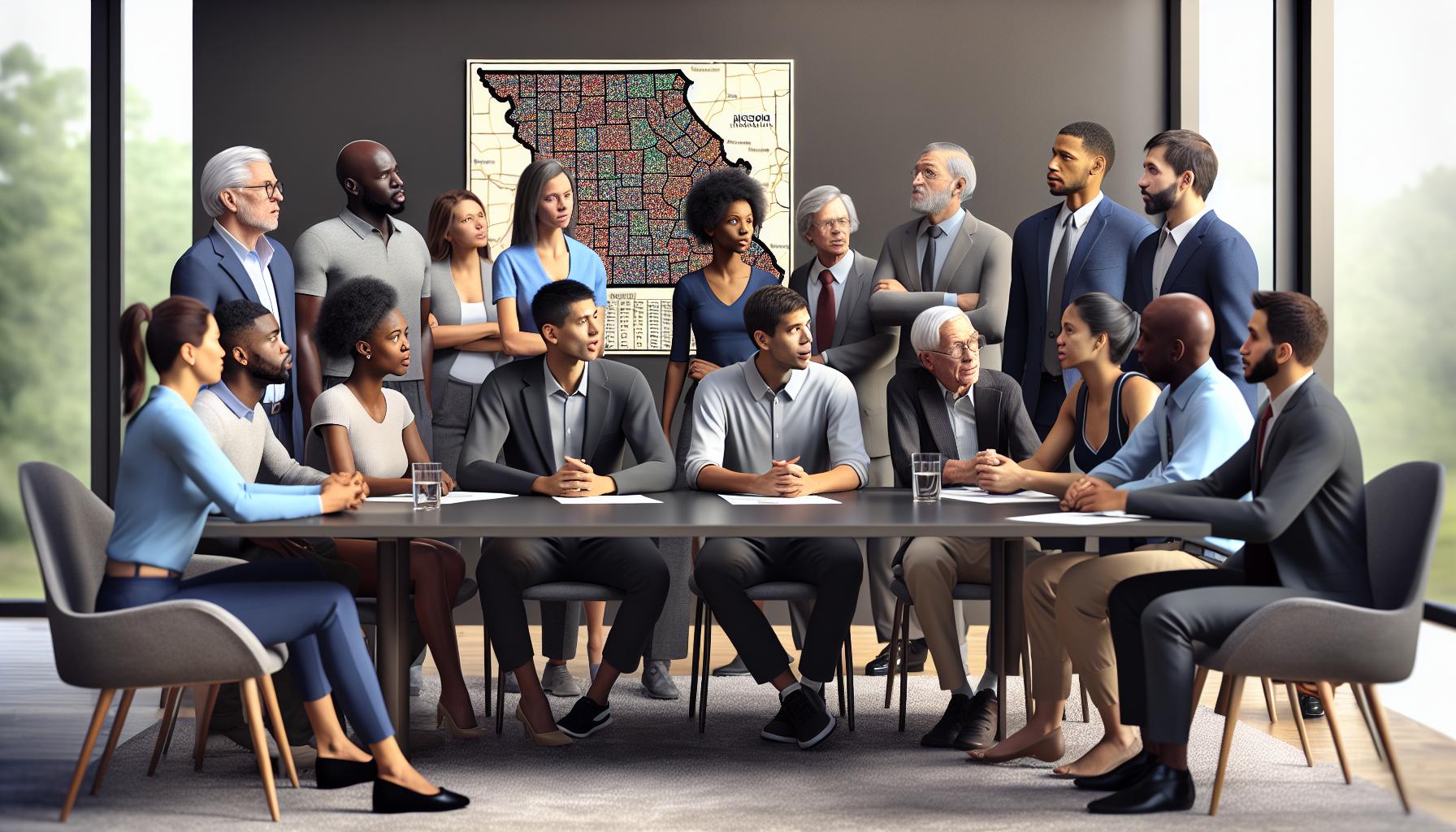As a sports enthusiast, I’ve watched the landscape of sports betting evolve dramatically across the United States. With numerous states embracing this lucrative industry, Missouri is now stepping into the spotlight with its own sports betting bill. This legislation has the potential to transform how fans engage with their favorite teams and events, creating new opportunities for both bettors and local economies.
The Missouri sports betting bill aims to establish a regulated framework that ensures fairness and security for all participants. By examining the intricacies of this bill, I’ll explore what it means for residents and how it could reshape the state’s sports culture. Whether you’re a casual fan or a seasoned bettor, understanding this development is crucial as Missouri seeks to join the ranks of states reaping the benefits of legalized sports wagering.
Key Takeaways
- Regulated Framework: The Missouri sports betting bill establishes a legal and regulated framework for both in-person and online sports wagering, aiming to ensure fairness and security for all participants.
- Tax Revenue Benefits: A 15% tax on adjusted gross receipts is set to generate substantial revenue, projected at over $20 million in the first year, which will fund public schools and infrastructure projects.
- Job Creation: The bill is anticipated to create thousands of jobs across various sectors including sportsbooks, casinos, and ancillary services, boosting the local economy.
- Stakeholder Reactions: Major sports leagues support the bill for enhancing fan engagement, while advocacy groups express concerns over potential gambling addiction, calling for stronger safeguards.
- Future Economic Growth: With increased accessibility to sports betting, Missouri’s economy is poised for growth, benefiting local communities through enhanced spending and funding for public initiatives.
- Need for Responsible Gaming: Comprehensive measures and educational programs are vital to address the social issues related to gambling, ensuring a balanced approach to the newly legalized market.
Missouri Sports Betting Bill
The Missouri sports betting bill establishes a legal framework for sports wagering in the state. This legislation stipulates that licensed operators must adhere to specific regulations, promoting responsible gambling measures. The bill allows both in-person and online betting, catering to diverse preferences among bettors.
Key provisions within the bill include:
- Licensing Requirements: Operators must obtain a license from the Missouri Gaming Commission, ensuring accountability and integrity within the industry.
- Tax Revenue Allocation: A percentage of the tax revenue generated from sports betting will fund public schools, infrastructure projects, and problem gambling initiatives, supporting community development.
- Promotional Offers: The bill permits licensed operators to offer promotional incentives, such as bonus bets and loyalty programs, enhancing the betting experience for users.
This legislation aims to create a competitive market, drawing bettors towards regulated platforms and reducing illegal gambling activities. With its enactment, the bill positions Missouri to capture a share of the growing sports betting market, enhancing the state’s economy and sports culture.
Key Provisions of the Bill


The Missouri sports betting bill establishes essential guidelines to regulate and oversee sports betting. These provisions focus on licensing, taxation, and operational frameworks.
Licensing and Regulation
I see that the bill mandates comprehensive licensing for sports betting operators. Each operator must obtain a license from the Missouri Gaming Commission, ensuring strict adherence to state regulations. The licensing process includes background checks, financial audits, and suitability assessments. Additionally, in-person registration at casinos is required for online betting accounts. This approach enhances security and protects consumer interests while promoting a responsible betting environment.
Taxation Structure
The taxation structure outlined in the bill specifies a tax rate of 15% on the adjusted gross receipts from sports betting. Revenue generated from this tax will be allocated to support various public initiatives, including education and infrastructure projects. This measure not only boosts state revenue but also channels funds into crucial services that benefit the community. Furthermore, the bill encourages transparency by requiring operators to report revenue and tax contributions regularly.
Impact on Local Economies


The Missouri sports betting bill holds significant promise for local economies by generating revenue and creating job opportunities. The potential economic benefits can transform communities across the state.
Potential Revenue Generation
The sports betting bill imposes a 15% tax on adjusted gross receipts from wagering activities. This tax structure can lead to substantial revenue streams, projecting millions of dollars annually. For example, estimates suggest that Missouri could generate upwards of $20 million in tax revenue within the first year post-implementation. Revenue allocation focuses on critical public initiatives, including education and infrastructure, offering residents lasting benefits. Local governments may further capitalize on this influx of cash by investing in community services and development projects.
Job Creation Opportunities
The introduction of regulated sports betting in Missouri is likely to create numerous job opportunities. Sportsbooks and casinos will require staff for various roles, including management, customer service, and compliance. Projections indicate that the industry could create thousands of jobs statewide. Additionally, ancillary services associated with sports betting, such as marketing and technology support, may also see growth. These jobs not only provide employment but also contribute to the local economy, as workers spend their earnings within the community.
Reactions from Stakeholders


Stakeholders have shown diverse reactions to Missouri’s sports betting bill, reflecting varied interests and concerns across the state.
Support from Sports Leagues
Sports leagues express strong support for Missouri’s sports betting bill. They view regulated sports betting as a means to enhance fan engagement and create new revenue streams. Major leagues, such as the NFL and NBA, endorse the bill, believing it promotes integrity in the sport. They appreciate measures that ensure transparency and accountability among operators. These leagues anticipate increased viewership and emotional investment from fans, ultimately benefiting the overall sports industry in Missouri.
Opposition from Advocacy Groups
Advocacy groups voice significant concerns over the sports betting bill. They argue that legalized sports betting may exacerbate gambling addiction and associated social issues. Organizations focused on public health highlight the potential risks to vulnerable populations, including young adults. Advocates urge for stronger safeguards and educational programs to mitigate these risks. Their position emphasizes the need for comprehensive support systems accompanying any expansion of gambling within the state.
Future Implications for Missouri
Missouri’s sports betting bill signifies a pivotal shift in the state’s approach to gambling regulation, bringing several future implications for residents and stakeholders. This legislation sets the stage for considerable economic benefits, bolstering local economies through increased spending and job creation. As sports betting becomes more accessible, I expect that the influx of revenue will enhance funding for public initiatives, particularly in education and infrastructure.
The creation of a regulated betting market transforms not only the gambling landscape but also the state’s overall sports culture. Increased fan engagement develops as casual and experienced bettors experience new ways to interact with live sports. With an estimated $20 million in tax revenue projected for the first year, investments from this revenue could drive community projects and enhance the quality of life for residents.
Stakeholders, including local governments and businesses, will likely benefit from the economic expansion prompted by sports betting. Job opportunities in sportsbooks, casinos, and related industries present a substantial contribution to the workforce. Harnessing this potential supports local economies as workers spend their earnings within the community.
While proponents advocate for the economic and engagement benefits, caution exists regarding gambling addiction and related social issues. Advocacy groups urge comprehensive measures to safeguard at-risk populations. Educational initiatives and support programs must accompany this expansion to address concerns surrounding gambling. Collaboration among stakeholders is essential to create a balanced approach that prioritizes responsible gaming.
Moving forward, monitoring the outcomes of this bill allows stakeholders to adapt strategies that address the evolving landscape of sports betting in Missouri. I anticipate that the reactions from diverse groups will facilitate ongoing discussions about the future direction of gambling regulation in the state.
Gambling Landscape
Missouri’s sports betting bill marks a significant advancement for the state’s gambling landscape. With its potential to generate substantial tax revenue and create jobs, I’m excited to see how this regulated framework will impact local communities.
The focus on consumer protection and transparency is reassuring for bettors and stakeholders alike. As more residents engage with sports betting, the effects on fan culture and economic growth could be profound.
However, it’s crucial to remain vigilant about the risks associated with gambling. Ongoing discussions about responsible gaming and support for at-risk populations will play a key role in shaping the future of sports betting in Missouri. I’m looking forward to seeing how this unfolds and the positive changes it can bring to the state.

